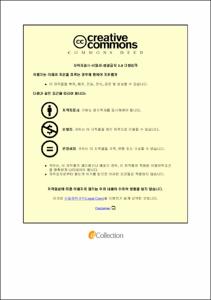간이식환자의 면역억제제 복용 불이행 영향요인
- Abstract
- 본 연구의 목적은 간이식환자들의 면역억제제 불이행 정도를 조사하고 영향요인을 조사하여 향후 간이식환자들을 위한 간호 중재 계획을 수립하기 위해 실시된 서술적 조사연구이다.
본 연구의 대상자는 간이식 후 면역억제제를 3개월 이상 복용하고 있는 만18세 이상의 환자 중 2018년 4월 26일부터 2018년 5월 20일까지 외래를 방문한 150명을 대상으로 면역억제제 불이행군과 이행군을 분류하였다. 수집된 자료는 SPSS Version 24.0프로그램을 이용하여 빈도와 백분율, 평균과 표준편차, chi-square test, 로지스틱 회귀분석을 이용하여 분석하였다.
본 연구결과는 다음과 같다.
1. 본 연구의 면역억제제 복용 불이행군은 63명(42.0%), 복용 이행군은 87명(58.0%)으로 복용 불이행군의 비율이 높았다.
2. 일반적 특성과 면역억제제 복용 불이행 관계에서 성별, 연령, 직업, 배우자 유무, 종교, 교육 정도, 경제상태, 흡연 및 음주 여부 모두 통계적으로 유의한 차이가 없었다.
3. 간이식 후 기간에서 두 군 간에 비율이 다르게 나타났다(χ²=16.8, p=.001). 간이식 횟수에서는 2회 이상 간이식을 받은 경우(p=.042), 면역억제제 중 Methylprednisolone을 복용하는 경우(χ²=3.92, p=.048)는 통계적으로 유의하였다.
4. 면역억제제 복용 장애요인의 총합은 불이행군에서 더 높게 나타났다(t=-2.92, p=.004). 세부항목으로는 ‘약 복용 시간을 잊어버려서’(t=-4.56, p=.000), ‘한번쯤 약을 빼먹어도 괜찮다는 생각이 들어서’(t=-2.69, p=.008), ‘약을 빼먹어도 증상이 변함없어서’ (t=-2.30, p=.024) 항목이 통계적으로 유의한 차이가 있었다. 면역억제제 관련 증상경험의 총합(t=-2.26, p=.025), 자기효능감의 총합(t=2.41, p=.017)도 유의한 차이를 보였다.
5. 단변량 분석결과 간이식 후 기간은 1년 미만이 경과한 경우에 비해 5년-9년이 지난 경우 3.68배(95% Confidence interval [CI] 1.22-11.16), 10년 이상 경과한 경우 4.94배(95% CI 1.58-15.38) 높게 나타났다. 간이식수술을 2회 이상한 경우 1회 한 경우보다 11.91배(95% CI 1.17-120.87) 높았고 면역억제제 복용 장애요인 중 ‘약 복용시간을 잊어서’ 라고 대답한 경우 불이행 군에서 1.40배(95% CI 1.18-1.66), ‘한번쯤 약을 빼먹어도 괜찮다는 생각이 들어서’라고 대답한 경우는 1.34배(95% CI 1.07-1.68)로 높게 나타났다. 면역억제제 관련 증상경험의 점수가 1점 증가할수록 1.01배(95% CI 1.00-1.03) 불이행률이 증가하였다.
6. 다변량 분석결과 간이식 후 10년 이상 경과한 대상자에서 1년 미만인 대상자보다 면역억제제 복용 불이행 위험이 3.72배(95% CI 1.01-13-.70), ‘약 복용시간을 잊어서’라고 대답한 경우가 1.43배((95% CI 1.20-1.70), 면역억제제 관련 증상경험의 점수가 1점 증가할수록 1.02배(95% CI 1.00-1.04) 불이행이 증가하였다.
본 연구의 결과 간이식 후 면역억제제 복용 불이행은 간이식 후 10년이 경과하였을 때,‘약 복용시간을 잊어서’의 장애요인이 있는 경우, 면역억제제 관련 증상경험 점수가 높을수록 복용 불이행 위험도가 증가하는 것을 확인하였다. 따라서 면역억제제 복용 불이행 가능성이 높은 환자들을 선별하여 적절한 사전 교육을 실시하고 수술 후에는 동류 집단을 통한 성공경험 공유, 고충 상담 등 지속적인 관리가 필요하다. 또한 면역억제제 복용을 잊지 않도록 하기 위한 면역억제제 일기, 달력 등 환자가 직접 계획하고 실천할 수 있도록 하는 환자 중심의 중재를 통하여 간이식 후 건강한 삶을 유지할 수 있도록 하기 위한 다양한 교육 프로그램 개발이 필요하겠다.
|This study was to identify the factors influencing non-adherence with immunosuppressants in liver transplantation patients.
Data were collected using questionnaires from 150 liver transplantation patients from April 26, 2018 to May 20, 2018 and were analyzed by descriptive statistics, χ²test, t-test and logistic regression using the SPSS 24.0 program.
The results of the study were as followings.
1) Sixty-three (42.0%) of patients were reported non-adherence with immunosuppressants.
2) There were no significant differences in gender, age, occupation, marital status, religion, education level, economic status, smoking, and drinking status between non-adherence group and adherence group with immunosuppressants.
3) In multivariable analysis, non-adherence with immunosuppressants were associated with the period more than 10 years after transplantation (Odds Ratio [OR]=3.72, 95% Confidence interval [CI]=1.01-13.70, p=.048), a barrier as ‘Forgetting the time of medication’ (OR=1.43, 95% CI=1.20-1.70, p<.001), and higher symptom distress (OR=1.02, 95% CI=1.00-1.04, p=.017).
This study recommends patients with high risks of non-adherence with immunosuppressants be screened. It is necessary to develop patient-centered nursing interventions such as medication diary or medication calendar, education programs, and peer group program after transplantation to reduce non-adherence.
- Issued Date
- 2018
- Awarded Date
- 2018-08
- Type
- Dissertation
- Alternative Author(s)
- Park Hee Jung
- Affiliation
- 울산대학교
- Department
- 산업대학원 임상전문간호학전공
- Advisor
- 최혜란
- Degree
- Master
- Publisher
- 울산대학교 산업대학원 임상전문간호학전공
- Language
- kor
- Rights
- 울산대학교 논문은 저작권에 의해 보호받습니다.
- Appears in Collections:
- Industry > Professional Clinical Nursing
- 파일 목록
-
-
Download
 200000107310.pdf
기타 데이터 / 626.86 kB / Adobe PDF
200000107310.pdf
기타 데이터 / 626.86 kB / Adobe PDF
-
Items in Repository are protected by copyright, with all rights reserved, unless otherwise indicated.